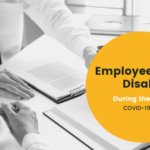On June 27, 2023, the Pregnant Workers Fairness Act (PWFA) went into effect. This recently passed federal law requires certain employers to provide reasonable accommodations to employees with known limitations related to pregnancy, childbirth, or other related medical conditions. The only exception for employers is if they can show that the accommodation will cause an “undue hardship” for the business. The Equal Employment Opportunity Commission (EEOC) has been tasked with enforcing the PWFA.
Who is protected under the PWFA?
The PWFA protects employees who have any known limitation related to pregnancy, childbirth, or a related medical condition. This can include both physical and mental conditions. An employee wishing to afford herself protections under the PWFA must inform their employer of the condition. While employees are no longer required to prove that their condition constitutes a “disability” under the Americans with Disabilities Act to be protected, the employee must still be able to perform the essential functions of their job with or without a reasonable accommodation. To be protected, the employee must be employed by a private or public sector employer with at least 15 employees.
What protections do pregnant employees have?
Employers are required to provide eligible employees with a reasonable accommodation unless the employer can show that the accommodation would create significant difficulty or expense for the employer. While there is no exhaustive list of what constitutes a reasonable accommodation under the PWFA, possible accommodations for pregnant employees may include the following:
- Break/rest time;
- Leave;
- Specialized seating;
- Temporary reassignment; and
- Change to schedule/hours.
What to do if my employer is not providing pregnancy related accommodations?
If you are pregnant, nursing, or recently gave birth, and your employer is refusing to provide you with a reasonable accommodation, it is important to know your legal rights. First, you can and should contact an employment attorney in your area who is knowledgeable about protections for pregnant employees. You also have the right to file a charge of discrimination with the EEOC.








